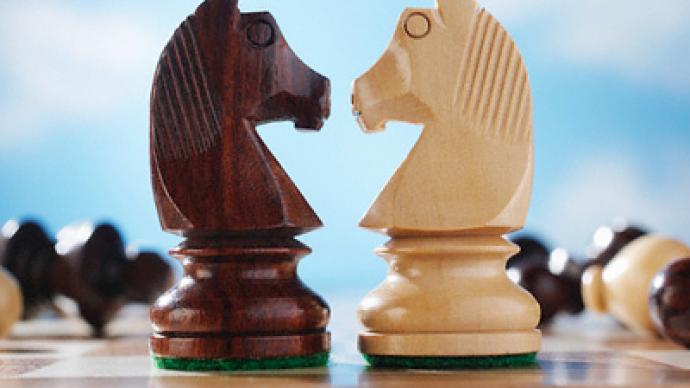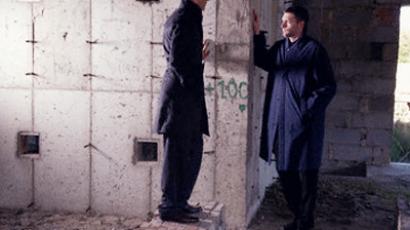“Russia as an enemy” benefits Georgian government – Nino Burjanadze

Following the arrest of four Georgian photojournalists on charges of espionage, a popular Georgian opposition leader has said that the current Georgian leadership has no wish to break the stalemate in its relations with Russia.
Nino Burjanadze, former parliament speaker and the leader of the opposition party “Democratic Movement – United Georgia”, said that the current leadership in Georgia finds it beneficial to have Russia as a scapegoat to blame for its mounting problems on the domestic and international fronts."The current leadership of Georgia has no true wish to break the stalemate in Georgian-Russian relations,” Burjanadaze said in an interview with Ekho Moskvy radio. “It finds it very beneficial…to see Russia as an enemy that can be blamed for all the problems that exist in the country."Commenting on Georgia’s recent spy scandal in which the government of President Mikhail Saakashvili has once again detected a Russian connection, she offered a cynical take on the events: "In Georgia today, Saakashvili is talking of stability, [something] which the country generally lacks. Because, excuse me, if there are so many agents of the Kremlin, the Russian Main Intelligence Department and FSB on every corner here, what stability could we be speaking of?”Last week, Tbilisi rounded up four Georgian photojournalists and charged them with espionage. Georgian newspaper Kviris Kronoka (Weekly Chronicle) published a letter from one of the detained, Interior Ministry’s staff photographer Giya Abdaladze in which he said that the repressions against the photojournalists began after they made and distributed pictures from the May 26 anti-government rally. “Two of my pictures made it to the Associated Press web-site and from there – to the leading newspapers of Europe and United States. Zurab Kurtsikidze and correspondents from France Presse and Reuters also made scandalous photos, but [Irakli] Gedenidze made the best ones. He arrived at the scene of the rally together with riot police. He had best conditions for shooting as the police knew that he was the president’s photographer and were not making any obstructions,” the letter reads. Abdaladze also noted that one of the photos made by Gedenidze featured ”the body of a man killed by riot police”. “He sold this photo to Kurtsikidze who then distributed it through the epa agency,” the letter reads.In her interview, Burjanadze questioned the claims that Saakashvili’s personal photographer, Irakli Gedenidze, was in a position to “give away state secrets.”“I cannot understand why a photographer should have access to any state secrets at all," she said.Meanwhile, the health condition of one of the arrested photographers reportedly deteriorated after he went on hunger strike last Thursday, the day the four were detained, his lawyer said. Giorgi Abdaladze refused food and water for nearly two days, his lawyer Ramaz Chinchaladze told reporters before entering the Interior Ministry detention center where the suspects are being held.The arrests are serving as a catalyst for demonstrators, including journalists, members of nongovernmental organizations and human rights activists, who all gathered in front of the detention center where the four detainees are being held. Some in the crowd symbolically tied blindfolds around their heads, demanding more information from the authorities about the arrests.Commenting on the situation in her country, Burjanadze said the Georgian authorities are “using the shield of the law and the name of justice” while at the same time violating “all fundamental norms that are so necessary for the country to meet at least the basic standards of democracy.”Speaking on the subject of Georgian-Russian relations, the popular Georgian opposition leader said that the restoration of mutual trust between the two countries requires "an open discussion of the true interests and red lines that can or cannot be crossed."Burjanadze mentioned the need for beginning a “trustful dialogue” with Russia, something that remains altogether impossible as long as Mikhail Saakashvili remains in charge of the Caucasian country. Indeed, Russian President Dmitry Medvedev went so far as to label the Georgian leader a “political corpse” in the aftermath of 5-day conflict in August 2008 when Georgian forces made a rash bid to take control of Abkhazia and South Ossetia.While acknowledging the “complex” problems confronting both countries, Burjanadze spoke both metaphorically and realistically of “rebuilding the bridges that had unfortunately been burned" between Russia and Georgia.“Yes, I realize that the problems of Abkhazia and South Ossetia are very complex, especially after the recognition [of their independence], especially after the war,” Burjanadze noted. “But I am absolutely convinced that by starting a trustful dialogue between the Abkhaz, Georgians and Ossetians, we can start rebuilding the bridges that have unfortunately been burned.”Robert Bridge, RT














